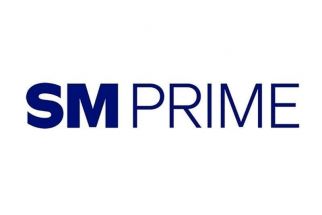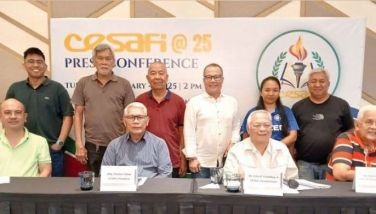Tomato processing firm seeks tariff wall
March 7, 2003 | 12:00am
Northern Foods Corp. (NFC), a state-owned tomato processing plant wants tariff rates on tomato paste increased from 10 percent to 30 percent over the next three years to protect the local tomato processing industry from cheap tomato paste imports.
At the same time, NFC is asking Tariff Commission (TC) Chairman Edgardo B. Abon to impose a so-called "tariff heading extraction" based on the different tomato paste grades.
Bernardo JB Mitra, NFC chairman, said local manufacturers of tomato paste are finding it extremely difficult to slug it out with competition from China and the United States.
Mitra said the local market is being swamped with tomato paste imports, and this has increased significantly from about 11,500 metric tons (MT) in 1996 to more than 17,400 MT in 2001.
As a result, NFC’s sales plunged to only 2,700 MT from 4,500 MT during the same period. This forced NFC to produce a measly volume of 1,886 MT.
From 1999 to 2002, NFC incurred losses amounting to P34.89 million, P45.36 million, P69.71 million and P33.21 million, respectively.
"Even with the current tariff rate of 10 percent under EO 164, the local tomato paste industry, including our company is still unprotected," said Mitra. EO 164 which raised tariff rates on specific commodities was approved by Malacañang last January.
In a position paper submitted earlier to the TC, NFC said government should heed its call for a higher tariff wall to keep its operations viable, adding that companies like NFC compete with foreign companies that are provided substantial subsidies by their respective governments and are shielded by tariff covers that were in place for a considerable period.
Aside from the influx of cheap tomato paste imports, local tomato paste manufacturers also have inherent disadvantages in terms of higher power/fuel rates and cost of farm inputs compared to other countries such as China; higher interest rates and lack of available credit lines; inferior infrastructure that increases production costs, and higher labor cost.
NFC is also asking the TC to impose a "tariff heading extraction" based on the different "brix" or grades of tomato paste.
"This means that tariff will be based on the viscousity of tomato paste and grades that are not being produced locally will be slapped higher tariffs," said Mitra.
NFC currently only manufactures tomato paste of 28 percent to 30 percent brix.
Mitra said tother countries maintain separate tariff headings for the different grades of tomato paste, depending on the viscousity.
NFC is one of only two surviving tomato processing plants in the country. The other one is in Bukidnon in Mindanao.
At the same time, NFC is asking Tariff Commission (TC) Chairman Edgardo B. Abon to impose a so-called "tariff heading extraction" based on the different tomato paste grades.
Bernardo JB Mitra, NFC chairman, said local manufacturers of tomato paste are finding it extremely difficult to slug it out with competition from China and the United States.
Mitra said the local market is being swamped with tomato paste imports, and this has increased significantly from about 11,500 metric tons (MT) in 1996 to more than 17,400 MT in 2001.
As a result, NFC’s sales plunged to only 2,700 MT from 4,500 MT during the same period. This forced NFC to produce a measly volume of 1,886 MT.
From 1999 to 2002, NFC incurred losses amounting to P34.89 million, P45.36 million, P69.71 million and P33.21 million, respectively.
"Even with the current tariff rate of 10 percent under EO 164, the local tomato paste industry, including our company is still unprotected," said Mitra. EO 164 which raised tariff rates on specific commodities was approved by Malacañang last January.
In a position paper submitted earlier to the TC, NFC said government should heed its call for a higher tariff wall to keep its operations viable, adding that companies like NFC compete with foreign companies that are provided substantial subsidies by their respective governments and are shielded by tariff covers that were in place for a considerable period.
Aside from the influx of cheap tomato paste imports, local tomato paste manufacturers also have inherent disadvantages in terms of higher power/fuel rates and cost of farm inputs compared to other countries such as China; higher interest rates and lack of available credit lines; inferior infrastructure that increases production costs, and higher labor cost.
NFC is also asking the TC to impose a "tariff heading extraction" based on the different "brix" or grades of tomato paste.
"This means that tariff will be based on the viscousity of tomato paste and grades that are not being produced locally will be slapped higher tariffs," said Mitra.
NFC currently only manufactures tomato paste of 28 percent to 30 percent brix.
Mitra said tother countries maintain separate tariff headings for the different grades of tomato paste, depending on the viscousity.
NFC is one of only two surviving tomato processing plants in the country. The other one is in Bukidnon in Mindanao.
BrandSpace Articles
<
>
- Latest
- Trending
Trending
Latest
Trending
Latest
Recommended



























